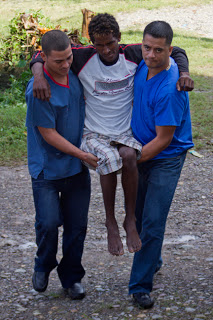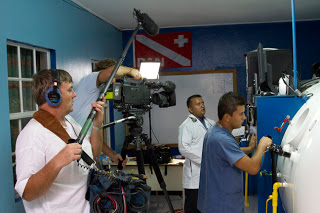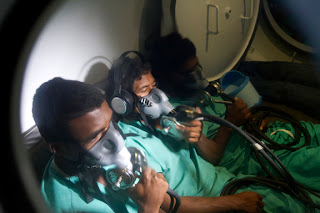(This is the second installment of the behind-the-scenes account of traveling with the NBC crew for the Rock Center story.)
Monday morning dawned early for most of us. The time difference was two hours then (daylight savings time was still on) so even though most of us wanted to sleep to be.
This treatment was the 596th time Dr. Mejia had run a treatment since opening the clinic. He averages seven treatments per patient; often multiple divers are in the chamber at the same time. While Dr. Mejia sees the most severe patients, almost always with some level of paralysis and often with bladder control issues, he has had tremendous success. He has an 81 percent success rate of divers leaving the chamber under their own power. Often they need a cane or a walker, but they are in much better shape than when they arrived.
What still amazes me is that Dr. Mejia only charges about $300 US per diver. That is for all his care, not per treatment. Care includes treatment, food, lodging, physical therapy, any tests he has to run. Dr. Mejia doesn’t charge the divers. He charges the boat owners, although sometimes they won’t pay. He is reluctant to raise his prices any, however, as he is afraid the boat owners will refuse to pay, or worse will skip treatment all together.





